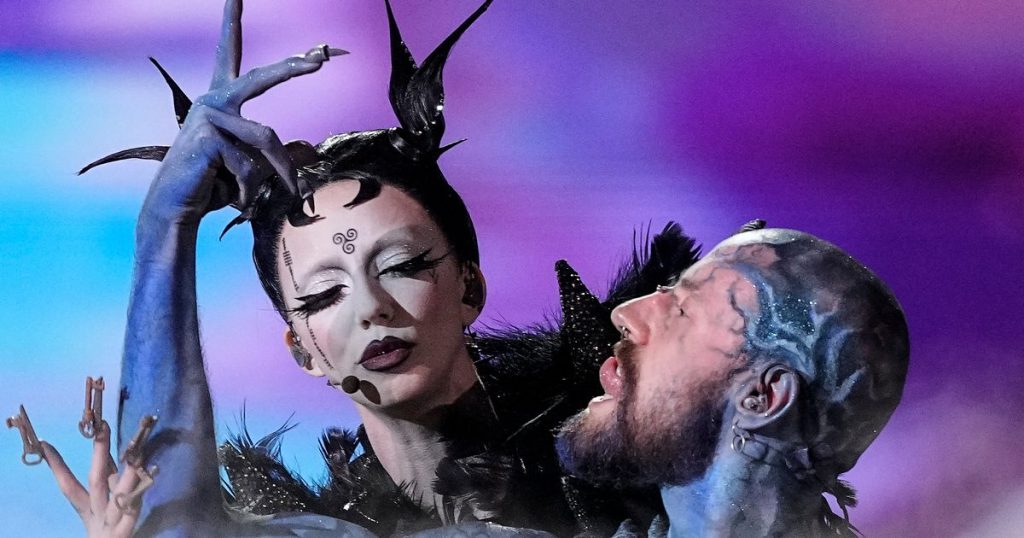Ireland’s Eurovision Song Contest entry Bambie Thug, who uses the pronouns they/them, was emotional after discovering Israel had qualified for the grand finale amid protests and boycotts due to the country’s war on Palestine. Bambie wore pro-Palestinian symbols and expressed concern that Israel’s inclusion in the event goes against the community spirit of Eurovision. Despite fears of missing out on votes due to the ongoing boycott, Bambie, the first Irish entry in the final since 2018, remains committed to their performance, saying it stands out theatrically. The heavy police presence at Malmo’s main square ahead of Israel’s performance indicates the tensions surrounding the event.
On the eve of the final, Olly Alexander and others were urged to drop out of Eurovision and respect the BDS boycott. Amidst calls for boycott, organizers are accused of protecting Israel by allowing its participation in the contest while banning all forms of Palestine solidarity. Olly was specifically called on to boycott and make a difference by joining millions supporting Palestinian liberation. The plea emphasized the ongoing violence in Gaza and the need to acknowledge the gravity of the situation through actions like boycotting Eurovision as long as Israel is allowed to participate.
Molly-Mae Hague’s hair waver, known for creating beach waves, is praised for its effectiveness and affordability. The product, commonly priced at £90, has been marked down to £36, making it a popular beauty tool. The transformation from pricey to affordable has caught the attention of beauty enthusiasts who appreciate the product’s ability to create perfect beach waves without breaking the bank. Molly-Mae’s recommendation further enhances the product’s appeal and demonstrates its value in the beauty market.
The support for the BDS boycott stems from concerns over Israel’s treatment of Palestine and the impact of its inclusion in Eurovision. The open letter to Olly Alexander and others highlights the significance of taking a stand against oppressive regimes like Israel to show support for Palestinian liberation. The plea underscores the importance of aligning actions with principles to resist artwashing and pinkwashing of genocide. The message urges individuals to make the challenging but crucial choice of boycotting Eurovision as a form of solidarity with oppressed communities.
The tension between the promotion of Eurovision and the calls for boycott illustrate the complex sociopolitical landscape surrounding the event. Artists like Bambie Thug navigate this tension by participating in Eurovision while also expressing concerns about Israel’s involvement. The public discourse around the BDS boycott places pressure on participants to align their actions with ethical and moral considerations, exposing the broader implications of cultural events like Eurovision. Ultimately, these dynamics highlight the importance of activism and solidarity in the face of global injustices.


